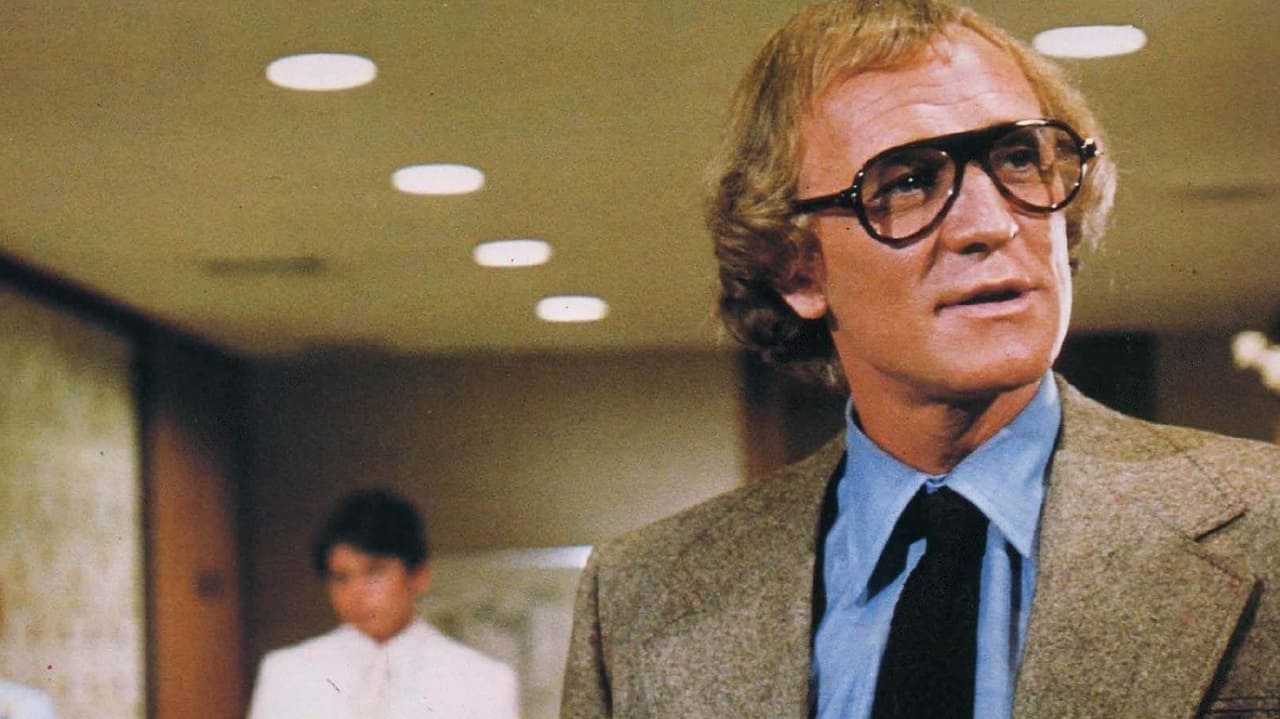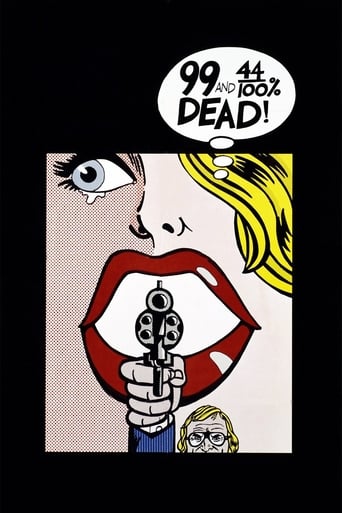

It's hard to see any effort in the film. There's no comedy to speak of, no real drama and, worst of all.
... View MoreI wanted to like it more than I actually did... But much of the humor totally escaped me and I walked out only mildly impressed.
... View MoreIt’s not bad or unwatchable but despite the amplitude of the spectacle, the end result is underwhelming.
... View MoreThere is, somehow, an interesting story here, as well as some good acting. There are also some good scenes
... View MoreShrewd ace hit-man Harry Crown (Richard Harris in fine cool form) gets hired by top mobster Uncle Frank Kelly (the excellent Edmond O'Brien) to bump off his ruthless rival Big Eddie (a deliciously broad portrayal by Bradford Dillman). However, Big Eddie retaliates by unleashing his brutish enforcer Marvin "Claw" Zuckerman (neatly essayed with menacing relish by Chuck Connors) on Harry. Director John Frankenheimer, working from a quirky and imaginative script by Robert Dillon, relates the zany story at a snappy pace, expertly mines an amusing line in dark, yet campy and playful deadpan humor, stages the exciting car chases and shoot outs with his customary skill and flair, maintains a cheerfully twisted screwball sensibility throughout, and delivers lots of striking oddball visuals that include giant alligators in the city sewers and corpses in cement shoes littering the bottom of the sea. Moreover, the cast attack the kooky material with lip-smacking zest: Harris, O'Brien, Dillman, and Connors have a field day with their colorful parts, with sturdy support from the gorgeous Ann Turkel as Harry's loyal and sultry school teacher girlfriend Buffy, David Hall as nice and eager novice button man Tony, Katherine Baumann as the sweet and adorable Baby, and Janice Heiden as Uncle Frank's luscious two-timing moll Clara. Ralph Woolsey's sharp cinematography gives the picture a funky stylized pop art look. Henry Mancini's groovy swinging score hits the right-on jaunty spot. A very enjoyable and interesting one-of-a-kind oddity.
... View MoreJohn Frankenheimer's post modern stab at the crime genre comes hot off the heels of Michael Ritchie's Prime Cut (from the same author no less), only the tone is more cutesy and the body count is nearly tripled. After a Pycal-inspired opening and an excellent underwater graveyard montage, we are introduced to pearly pistol gripped gangster Richard Harris who's en route to Chicago (?) to help win a dangerous mob war. The substandard mafia plot sits second tier to the film's sporadic comedy spoofing and mugging, much of what both fails and succeeds simultaneously at the hands of its dramatic director who must have been at the peek of his well publicized cocaine binge. Harris, with his balding curl mullet and wide-brimmed glasses resembles a young Michael Caine or Woody Allen depending on the lighting and camera angle, but performs his actions and delivers his dialog like a stone cold stoic; the juxtaposition is startling and dare I say cool as hell. Action scenes come out of nowhere and are framed and executed with professionalism, including a crazy ambush on an elevated bridge, and Chuck Conner's interchangeable James Bond claw which can alternate between knives and sex toys given the occasion. Much maligned and obscure gem. The skeletal dead humans and accompanying narrator reminds me of the Pirates of the Caribbean ride at Disneyland.
... View MoreExcellent close-ups, lots of black humor, great music, classical gangster scenario. A movie one can review a lot of times. Harris is one of my favorite actors. Others also show great acting. Very good in showing America in 1970's Even murder scenes appear to be somehow "easy-watching", which is rare, especially in recent times. Scenes showing mafia appear to be a little bit funny, but at the same time resembling some movies like Godfather. Excellent nervous scene when Harris is disarming the chair bomb at school. Spooky but also somewhat funny episodes showing underwater cemetery. Connors hook-hand is very amusing, especially when he mounts some "flowers-kit" on it. Real classic!
... View MoreRobert Dillon's script was considered by producer Joe Wizan to be a black comedy along the lines of Dillon's earlier one for "Prime Cut" (1972: d. Michael Ritchie). Director Frankenheimer, on returning to the USA after much time in France, was faced with a situation wherein years of bad reviews of his films were taking their toll. He accepted this project, and wanted Robert Mitchum for the main role, but the producers wanted Richard Harris, fresh from the hit film "A Man Called Horse".Critically however, the released film was felt to be a total fiasco, many reviewers holding that it represented the director's career at rock bottom. The film's dark, bleak humour and use of caricature were considered testimony to a certain sadism on Frankenheimer's part, and evidence of his growing contempt. In later years, even the great director plays down this most unusual gangster satire.It concerns a hitman trapped between rival gangs, and takes place in a vaguely futuristic city, which seems spatially to constantly re-define itself. It is filmed obliquely, so one is never on sure footing as to how to react. What is most interesting about this peculiarity, are the number of bizarre, surrealistic pop-culture set-pieces in a world of futile violence and rampant egos. Only despair and nihilism at the absurdity of it all enables the characters to hold on to whatever shreds of honour they can maintain although they all succumb to personal pride at the expense of everything else.Frankenheimer directs with a stylistic over-kill at times which sits uneasily with a certain lethargic quality, although it probably guarantees the film a cult audience in the future. Perhaps the film is best seen as a failed, but intriguing attempt to reconcile the director's frequent recourse to stylization with genre-based social satire. Still, the film seems uncertain of its aims, and tends to flounder in its often considerable visual panache. The remarkable opening sequence however, is amongst the oddest ever put to film, and typifies the film's sense of comic despair. A curio.
... View More